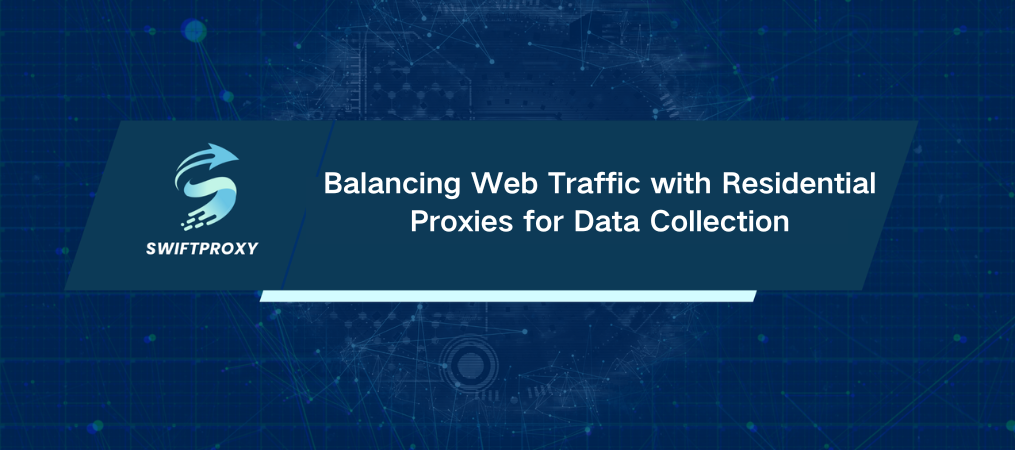Balancing Web Traffic with Residential Proxies for Data Collection

In the industry, data-driven decision-making is key. Companies monitor competitors' activities and webpages to find ways to enhance their own operations. They gather and analyze data to derive valuable business insights. Web scraping is fundamental to business intelligence, supporting a range of activities and supports a variety of analytical tasks and strategic activities.
Proxies are crucial for efficient web scraping, a vital aspect of business intelligence for data gathering. They offer numerous benefits for companies engaged in data gathering.
Data Gathering with Residential Proxies
Proxies help prevent server crashes by distributing the load away from your company's web server. They achieve this by distributing your web server's content across multiple servers around the world. Consequently, users are connected to the nearest server when accessing your website or online services. This setup also helps guard against DDoS (distributed denial of service) attacks.
Deploying a proxy is advantageous even with just one web server or application server. The proxy server's address acts as your brand address and is seen as the website's identifier. Located at the edge of your network, it handles requests for content from web browsers and mobile apps. The benefits for data gathering include:
· Enhanced Protection
By keeping details about your back-end servers hidden from external sources, proxies prevent malicious clients from directly accessing and exploiting vulnerabilities. Many proxy servers offer features that safeguard back-end servers from distributed denial-of-service (DDoS) attacks, such as blacklisting specific client IP addresses or limiting the number of connections from each client.
· Scalability and Adaptability Improvement
Since clients only interact with the proxy's IP address, you can make changes to your back-end infrastructure without impacting client access. This is particularly advantageous in a load-balanced system, where you can easily scale the number of servers up or down to handle variations in traffic volume.
· Speeding Up Web Responses
Web acceleration focuses on minimizing the time needed to generate and deliver a response to a client. Here are some techniques used for web acceleration:
1. Compressed Files
By compressing server responses (such as with gzip) before sending them to the client, you reduce the bandwidth required, leading to faster network transmission.
2. SSL Connection Termination
SSL termination secures the traffic between clients and servers over public networks like the Internet through encryption. Since the processes of encryption and decryption are computationally demanding, the proxy handles these tasks. It decrypts incoming requests and encrypts outgoing responses, thereby relieving back-end servers of this workload and allowing them to focus on delivering content.
3. Response Caching
The proxy stores a copy of the back-end server's response before delivering it to the client. When the same request is made by the client (or any other client), the proxy retrieves the response from the cache rather than forwarding the request to the back-end server. This results in faster response times for the client and decreases the load on the back-end server.
Conclusion
Fortunately, Swiftproxy offers some of robust and dependable residential proxy servers available. Our services enhance network performance by compressing traffic, caching files and web pages accessed by multiple users, and removing ads from websites. These features not only accelerate network speeds but also conserve bandwidth, helping to alleviate congestion and enabling your team to connect quickly and seamlessly.

















































